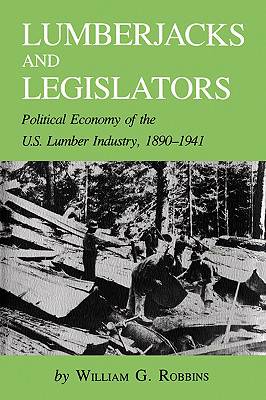
- Retrait gratuit dans votre magasin Club
- 7.000.000 titres dans notre catalogue
- Payer en toute sécurité
- Toujours un magasin près de chez vous
- Retrait gratuit dans votre magasin Club
- 7.000.0000 titres dans notre catalogue
- Payer en toute sécurité
- Toujours un magasin près de chez vous
Lumberjacks and Legislators
Political Economy of the U.S. Lumber Industry, 1890-1941
William G Robbins
27,95 €
+ 55 points
Description
For years the logging industry and the rich timberlands of the East and West coasts have evoked images of Jigger Jones and Paul Bunyan, lusty lumbermen of folk history. Behind these myths, however, lie the realities of ruthless competition, heedless exploitation of forestlands, and massive overproduction that once threatened to destroy the lumber industry. William G. Robbins reveals a sharply revisionist view of the lumber industry in the first half of the twentieth century, a period of drastic growth and change. He offers a unique national perspective on the dominant figures in logging--the large-scale plant, mill, and timberland owners whose decisions were shaped by profit seeking. It is a story of unbalanced production, economic gains and losses, the slow maturation of industrial capitalism, and the alarming toll in social and human costs. Modernizers in the industry developed trade associations as a means of controlling the widespread disorder. But these associations, dependent of voluntary and cooperative efforts, were relatively ineffective in the early years of the twentieth century. The fortunes of the lumber industry continued to fluctuate wildly until the Second World War, when lumbermen gained much of the legislative support they had sought so long from the federal government. This account will especially appeal to students of lumber and forest history as well as to historians, political scientists, and economists seeking a new approach to American political economy.
Spécifications
Parties prenantes
- Auteur(s) :
- Editeur:
Contenu
- Nombre de pages :
- 296
- Langue:
- Anglais
- Collection :
- Tome:
- n° 5
Caractéristiques
- EAN:
- 9781585440252
- Date de parution :
- 01-12-82
- Format:
- Livre broché
- Format numérique:
- Trade paperback (VS)
- Dimensions :
- 158 mm x 233 mm
- Poids :
- 526 g

Les avis
Nous publions uniquement les avis qui respectent les conditions requises. Consultez nos conditions pour les avis.






